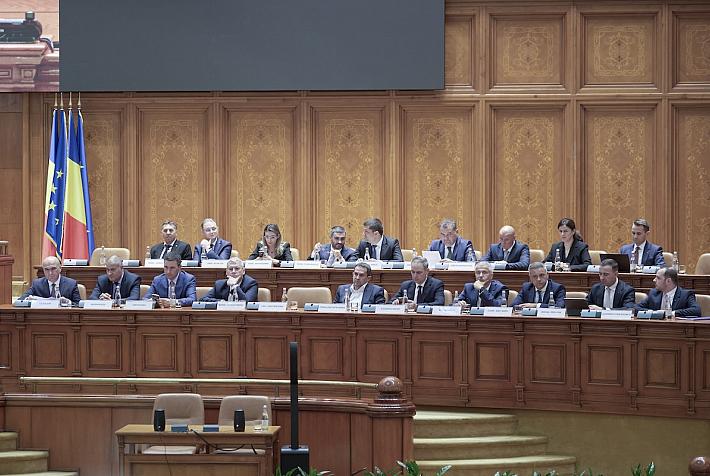Update: Romanian Government passes fiscal adjustment package

Update: The government will pass the ordinance covering measures aimed at reducing public spending and the budget deficit, prime minister Marcel Ciolacu announced.
The PM said the country was facing “a difficult year ahead” and “we must quickly adopt measures that will protect Romania from possible major financial risks.”
The tax on special constructions, which would cover power plants and gas, and oil wells, among others, will be applied only after the Finance Ministry holds talks with the large companies impacted by it, the PM said.
He insisted the ordinance was not one of "austerity" or "poverty." “Austerity was when salaries were cut by 25%, when VAT was increased from 19 to 24% or when hundreds of schools and hospitals were closed,” he said.
Initial news: The Government is scheduled to meet on Monday, December 30, to discuss the emergency ordinance covering measures aimed at reducing public spending and the budget deficit.
The Ministry of Finance published the draft ordinance on Sunday, December 29. It is available here.
Among the measures included in the draft ordinance, also known as "the austerity ordinance," are:
- The salaries of public sector employees and the pensions are kept at the level of November 2024, while the bonuses for state employees are eliminated.
- The tax on dividends increases from 8% to 10%.
- The tax incentives granted to workers in agriculture, construction, and IT are eliminated, including the exemption from paying the contributions to the privately-managed, mandatory Pillar II pension contributions.
- The taxation threshold for micro-enterprises decreases from EUR 500,000 to EUR 250,000; beginning 2026, the threshold is set at EUR 100,000.
- A 1.5% tax on special constructions (such as power plants, gas, and oil wells, electrical connection stations, etc.) is introduced. The tax, initially set by the Government of Victor Ponta in 2014, was eliminated in 2017.
- The value of the holiday vouchers (for public sector employees) is set at RON 800 (EUR 160), with the employee providing a co-payment of RON 800.
- The child allowances are kept at the November 2024 level.
- Students will receive the 90% discount on the value of train tickets only for trips between their home town and the city where their university is located, as opposed to all train trips before.
- The overtime hours worked by the public sector employees will be compensated exclusively through days off, not money. At the same time, the unused leave of the public sector employees will no longer be compensated in money.
- The subsidies granted to political parties decrease by 25% compared to 2024.
- A Department for Government Efficiency will be established, following the reorganization of other institutions. The department is meant to work for "the restructuring, reduction, and streamlining of public spending in the amount of at least 1% of GDP in 2025."
All pensions were scheduled to increase by 12%, which would have led to a budgetary impact of RON 19 billion (EUR 4 billion) in 2025.
(Photo: Alexandru Marinescu/ Dreamstime)
simona@romania-insider.com












